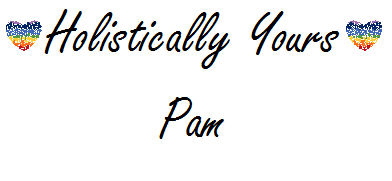I do love beans, pretty much all of them – except the Kidney Beans – oh they are not good at all….but all the others are now added back into our meals, after knocking them out for a good 6-9 months.
I started gradually incorporating white beans first, then onto the flagolets and when we can get them black beans – in fact never had an issue with them at all so it was probably more the chick peas (or garbanzo bean) I have found that soaking them before cooking or making hummus definitely seems to help in fact, I read a tip somewhere to lightly boil the chick peas before making hummus!
I do keep a selection of dried beans as well (especially as the Black beans are like hens teeth here!) but they need a very long soak, so I do have to thing about the weeks menu to use them!
So what do humble beans do for us?

Lots of Fibre
Beans are a great source of fibre. That’s important because most of us don’t get the recommended 25 to 38 grams each day. Fibre helps keep you regular and seems to protect against heart disease, high cholesterol, high blood pressure, and digestive illness. Navy beans have about 19 grams of fibre per cup . Add some turkey (optional) kale, onions, and carrots, for a hearty soup.
Plenty of Protein

Beans are a great way to get low-fat, low-calorie protein that already has the fiber and carbs mixed in. A single cup has around 15 grams.
That’s two to three times more than rice or wheat. It’s especially good for a protein building block called lysine that you might not get enough of if you’re a vegetarian. Cook a savory, protein-rich vegetarian stew with lentils, onions, carrots, tomatoes, and chili powder.
Great source of Iron
Your body uses iron to make blood proteins (hemoglobin and myoglobin) that help move oxygen around your body. It’s also a key nutrient for your hormones, and connective tissue like tendons and ligaments. A cup of soybeans has almost 9 milligrams. You can cook soybean pods, also called edamame, in salted boiling water. Eat them warm, straight out of the pod.
Provides Magnesium
Magnesium helps make protein and bone, and stabilizes blood sugar. Black beans are a particularly good source at 120 milligrams in a single cup. That’s about a third of the recommended daily amount. Try the tried-and-true combination of black beans and rice. Add a bit of shredded chicken and some lettuce and salsa for a delicious, healthy lunch.
Potassium
Your body needs the stuff for almost everything, including your heart, kidneys, muscles, and nerves. Beans have quite a bit of potassium, especially lima beans, which will give you almost 1,000 milligrams per cup. That’s about double what you’ll get from a banana.
Zinc
Your cells need it to fight off germs, make genetic material, and heal wounds. It helps children develop properly and aids your senses of smell and taste. A cup of chickpeas, also called garbanzo beans, has about 2.4 milligrams. That’s about a quarter of what you need for the day.
Folate
This B vitamin is especially important for women who are pregnant or trying to have a baby because it helps prevent certain birth defects. It’s also good for heart health, cell division, and your nervous system. You’ll get about 300 micrograms — three-quarters of the recommended daily amount — in just one cup of pinto beans. It’s the traditional base for the delicious refried beans used in many Mexican dishes.
Contains Resistant Starch
Resistant starch acts like fibre in that it’s harder to digest. It moves to the large intestine, where “healthy” bacteria in your gut feed on it. Resistant starches make you feel more full and keep your blood sugar down. You’ll increase the resistant starch if you let your beans cool down and refrigerate them. Try a mixed bean salad as a simple summer side dish.
Canned Beans Work, Too
Don’t worry if you don’t have time to soak and cook your beans. You just need to heat them up, and you’re good to go. Canned beans have many of the same nutrients, though home-cooked beans may have slightly more. Just watch out for the extra salt that some brands add. I always rinse off with water after I open them. Also we have jars of Beans as they are just as good so stock up for winter…

And finally – the big question – What About the Gas?
There is one downside to beans. You may get gas if you suddenly add a lot of beans to your diet. It’s not usually unhealthy, but it can be unpleasant. You should get less gas after the first week, as your body gets used to it. Drinking plenty of water can help.. You’ll get less gas from dried beans if you soak them overnight and throw away the water.
I hope you find some lovely ways to enjoy adding Beans into your diet (and in my opinion you can’t beat beaked beans in a Shepherd Pie!) and also a great go to with a poched egg! So however you have yours – enjoy!



